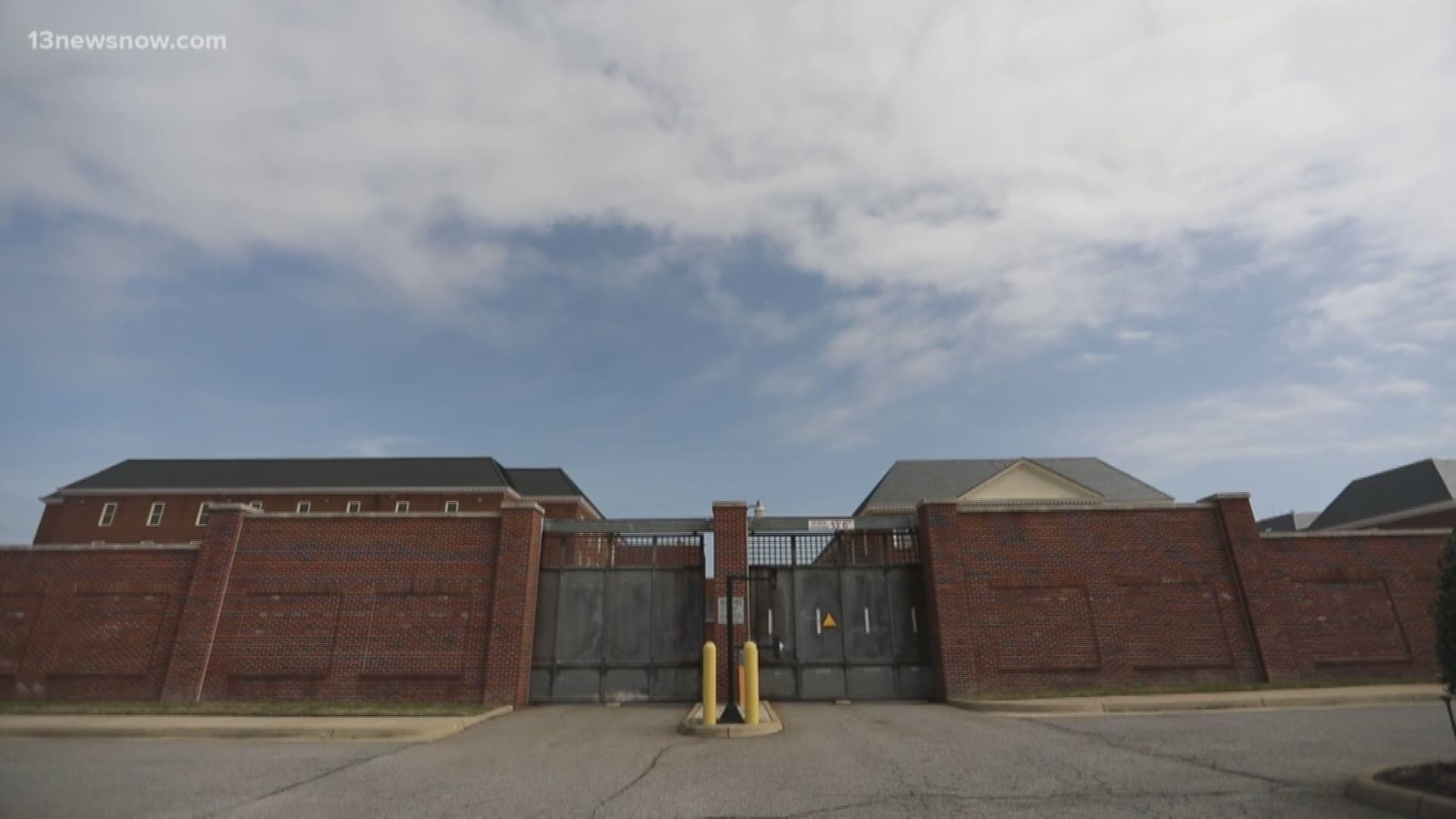VIRGINIA BEACH, Va. — Avoiding confined spaces and close personal contact is nearly impossible inside area jails, so local correctional leaders are worried about potential 'devastating' impacts if COVID-19 spreads throughout inmates and staff.
"I've never been this concerned about the working conditions and what's going to happen in the jail," Virginia Beach Sheriff Ken Stolle said. "If it gets into the jail it's going to be too late because it would spread like wildfire."
Stolle and the Virginia Beach Sheriff's Office are releasing some nonviolent misdemeanor offenders, quarantining new inmates and isolating others with illnesses. But Stolle worries that still might not be enough.
"If it comes in the jail people are going to die, inmates with respiratory problems and the elderly are going to die," Stolle said. "We have to keep this out of the jail. I don't want anyone to die in jail. It happens too much."
The close living quarters in jails and prisons are a primary concern. Jail populations also already have higher rates of chronic illness and disease.
The VBSO canceled its weekender program to limit potential coronavirus exposure. The Virginia Department of Corrections has canceled visitation at all facilities and many jails have cut off public access out of precaution.
Since Friday, VBSO has automatically quarantined 64 new inmates. They're being monitored for two weeks to make sure they're not showing symptoms of COVID-19.
Five other Virginia Beach inmates are currently in isolation for their illness, out of precaution.
Tuesday, VBSO announced it's releasing about 60 nonviolent misdemeanor offenders on electronic monitoring to free up space for potential quarantine situations.
"It's a very serious situation and I'm doing things I never thought I'd do as sheriff," Stolle said.
Hampton Roads Regional Jail Interim Superintendent Col. Christopher Walz said the jail now has enough medical supplies to screen every inmate and staff member before they enter.
"When they come, they are screened and their temperatures are screened again," Walz said. "We take this very seriously, we're cleaning constantly, reducing the amount of people coming into the building."
Walz says HRRJ benefits slightly because each new inmate admission spends five days at local city jails before being transferred to the regional jail, allowing more time for potential coronavirus symptoms to develop or show.
Relatives of inmates say they're very concerned about coronavirus spreading in the confined space.
"It's not just my grandson, they're humans, somebody's family member," said a grandmother of a Virginia inmate.
Local jails are extending methods of communication for inmates as a result of canceled visitation hours. VBSO is in talks to add two, free five-minute phone calls per inmate per week. Walz said HRRJ already added free weekly video calls for each inmate.
Stolle said coronavirus prevention is the top concern of jail leaders at the moment, and each day there's a new situation.
"We had someone come in last night and they said they've been exposed to the coronavirus," Stolle said. "Well we can't turn an inmate away, we have to take them in so we have them isolated in the jail right now."
Stolle said there are five of six people that he'd like to test for COVID-19 but VBSO, like many other agencies across the country, doesn't have access to testing kits yet, though Stolle said he hopes to get those soon.
He's worried about the risk of a deputy or a civilian worker contracting coronavirus and bringing it into the jail environment.
"There's nothing good about this, not a lot of solution to these problems," Stolle said. "We're taking every reasonable step we can think of but my guess is it's going to get in here and it's going to be hell when it gets in here."

